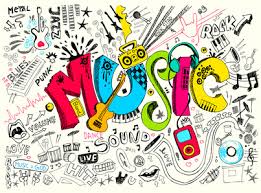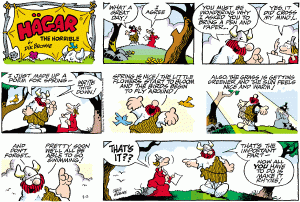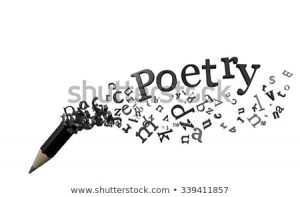1
Alice B. Fogel, former New Hampshire state Poet Laureate, reads Robert Bly’s “Starting a Poem.”
|
“In my view a good poem is one in which the form of the verse and the joining of its parts seems light as a shallow river flowing over its sandy bed.” —BASHO (Translated by Lucien Stryk) |
Some say a poem is a kind of song or a prayer; it’s both controlled and uncontrollable, a flight of the imagination, or it comes from a dream state. It is both inspiration (breath & movement) and perspiration (a poet’s practice of craft).
A poem is a made thing. And, according to poet Ed Hirsch, writing a poem “is a soul-making activity . . . [p]oems communicate before they are understood and the structure operates on, or inside, the reader even as the words infiltrate the consciousness.”
POETRY AND MUSIC
Imagine yourself driving down the road, listening to your favorite song, either singing along or just grooving to the beat. Your passenger in the seat next to you asks, innocently, “What does this song mean?” You stop; you think. It’s your favorite song. But what can you say?
“No idea. I just like it.”

Do you feel bad about that? We hope not. You are welcome to “just like it.” Who says you can’t like a song just because it feels good, or sounds good, or makes you happy?
- Of course, we can ask what the song is about, what it means, but we know we don’t have to ask in order to like it. Most songs do have meaning. Even dumb songs have meaning. We know that.
- We also probably know that the meaning of a song is not limited to the lyrics; a song expresses its meaning through the lyrics and the music. We all immediately understand that words like “I’ll love you always and forever” have one meaning when they are sung to a tender, lilting, melody and a very different meaning when they are shouted over screeching guitars.
- Poems have a lot in common with music. Poems can be enjoyed for their sound and rhythm alone, or even for their structure; they can be appreciated for how they make us feel without conscious consideration of meaning. But they also have a meaning. As with songs, the meaning of a poem is never absolutely separate from the meaning of its sounds and rhythms—its music. We don’t have drums and electric guitars and pianos in poems; but rhythm and sound and structure still carry meaning, and, like poets, we readers can learn how this works.
Our most fundamental job in this to help you to discover how poems create meaning through language and structure and rhythm and sound.
Five Myths That Make Poems Harder to Love
In our more than 30 years of teaching poetry in colleges and universities, we’ve observed that students tend to approach the subject from certain common half-truths or misconceptions. We’ll call them myths. Although these myths are not true and not even compatible with each other, a number of students believe all of them.
1) It’s all subjective: Some students believe that poems have no real meanings at all. When they read a poem, these students think, “I can think anything I want about the poem. It’s all interpretation, and there are no right and wrong answers.”
2) Poems are nothing but ideas that rhyme: Some students insist that poetry is the practice of putting “ideas” into rhyme. In other words, poems are just fancied-up ideas with rhyme stuck on to make it fun-sounding. Some think the poem is all about what it says; the rhyme (and meter all the other poetry-stuff) is there just for fun.
3) Poetry is just a form of self-expression: Whatever students believe about the meaning of a poem and the relationship of the meaning to the sounds, many students believe poetry is mainly about “expressing yourself” or, more specifically about “expressing your emotions.” They think that “in poetry, poets simply put what they feel onto paper in words.” It could be happiness, or sadness, or anger or any emotion.
4) Poetry is all about how it makes us feel. So it doesn’t matter what the poet might have thought about what they were saying when writing the poem. One student put it this way: “I would like to think that although I’m unable to point to something specific in the poem that gives me a particular feeling, it’s still a reaction I get from reading the poem. And if my particular feeling is not what the poet intended, well it’s just too bad. I feel something after reading a particular poem, and I’m not totally wrong, because it’s my reaction to it.”
5) Poems give advice, mainly good advice, about how to live. Students who understand that it’s possible for a poem to say something often assume that what a poem says can be boiled down to simple wisdom or a cliché like: “Be yourself,” “Live life to the fullest,” or “Appreciate the small things.”
- You probably find yourself in one or more of these places. This is where most students begin. You may be glad to know that most Americans probably agree with you. Nonetheless, we must understand at the start that these are myths. There may be an element of truth to most of them (as we’ll see in a moment), but they are more false than true. We need to work to overcome these myths and prejudices. And don’t take too much comfort in the fact that most Americans agree on these things; most Americans have never really studied poetry.
- These five myths are not just common; they are understandable. It’s not hard to see why people who have had only a slight association with poems would believe these things. They are so pervasive that most people pluck them out of the air.
- And then they read some poems, perhaps in high school English, that they don’t understand. And since they don’t understand the poems, they assume they must not have any meaning—in the ordinary sense.
- Or perhaps they are forced, in class, to come up with a meaning for a poem they don’t really understand, and therefore they decide that the poem just conveys some quasi-profound sentiment we’ve known since our Sesame Street days. Or they’ve heard a teacher give a meaning to a poem but can’t figure out where they “meaning” came from and assume they are just making it up.
- In fact, there is so much going on in most poems that it’s easy to be confused by them. Of these myths or prejudices, only the first one is absolute nonsense. Poems are never meaningless.
- Although some skill may be required in understanding the ways that poetry works, and although people do often debate the meaning of particular poems, poems (as we’ll say several times and in more detail) are made out of sentences; the sentences these poems are made of are English sentences with English words and English grammar and English structures.
- These sentences almost certainly follow the exact same grammatical rules as any written English sentence and, although they do more than most of the sentences not found in poems, they produce meaning in the same way that English sentences always produce meaning.
- This bears repeating: there is no way of using language that is exclusive to poetry. Not even rhythm and rhyme. If you can read this sentence, you can read or learn to read almost any poem. (You may have to trust us on that.)
- We’ll see during the semester that poetry uses language more intensely than normal for producing meaning and thereby produces more meaning than a typical sentence such as the one you are reading now. But this does not negate the grammar of the sentences or the meaning of the words. The concentration of words makes poems more meaningful, not less.
Often, this concentration of words along with the unique form of a poem can make poetry seem more confusing and difficult than it really is. And it is because poems are often confusing (and in rare cases deliberately confusing) that readers sometimes assume they don’t really mean anything at all, or that there are no right and wrong answers.” (We hear that sentence many times a year. It’s a hard myth for some students to give up on.) Read this:

- The second myth—the “Hagar the Horrible” prejudice, that poems put ideas into pretty sounding words—comes from the fact that many poems use a range of sound and rhythmic devices that appeal to readers in a visceral way, just as music does.
- What we hope to understand, in studying poetry, is that the “pretty sounding words” are not merely decorations on the meaning of a well-written poem (nor is the music simply a decoration on the meaning of a good song). They are part of the meaning. You cannot understand deeply what a poem is about unless you understand how the poem is saying what it is saying or doing what it is doing. The words may sound pretty, or they may sound deliberately ugly. However they sound, and the sounds are carefully chosen and meaningful, they are not just decoration.
- The third myth—that a poem is merely a poet’s expression of emotion—is at best an oversimplification, and with the vast majority of poems, it’s simply false. A poet is as free as any writer to write about themselves or their emotions. Most poets do not. Poets aim at common or even universal experiences, not personal ones. So even if they do happen (as they sometimes do) to write about their own lives or experiences, the point of the poem is never merely the experience of the poet.
- Although we don’t divorce feeling or emotion from poetry, if a poet (a human being like the rest of us) just wants to express emotion, they probably have better ways of doing so than writing a poem. The poet can yell or scream. They can punch a wall or, if they’re feeling particularly mean, kick a cat. The poet can sigh or cry or laugh, spit in someone’s eye or give someone a big passionate kiss. Against these possibilities, saying something in stanzas and meter and rhyme—a process which takes hours if not weeks or months to do, much more time than anyone can sustain an emotion—seems a pretty inefficient way to express emotion.
- Still, this prejudice is the most pervasive of all. The problem is not, then, that the prejudice or myth is absolutely false, but that it is limited and misleading. If we hang on to it too tightly, it causes us to misread poems. In fact, the importance of emotion varies greatly from poem to poem. Some poems may wish primarily to produce an emotional effect. The vast majority of poems also wish to produce a meaning effect as much as an emotional effect. The emotion is something you feel; the meaning is something you understand. A poem is something you experience. It is the reader’s not the poet’s experience that matters.
- The fourth myth—that all reactions are valid because they are reactions—is impossible to deny. If you fall in love with a dog because he bites you, no one can tell you you haven’t fallen in love. We might however question whether that was an appropriate reaction to a dog bite. Of course all reactions are “right” insofar as they are reactions—but not insofar as they are interpretations (or readings) of a particular poem. And we hope that, whatever your reaction, you feel absolutely free to have it. But you also need to understand that your reaction may sometimes come from a poor understanding of a poem. If I think a poem says one thing but come to find it means something very different, that is going to change my reaction to it.
- Not all reactions ultimately make sense in relation to a particular poem. One may very well misunderstand a poem and then respond to the misunderstanding. The student quoted above was convinced that the poem she’d read was about “rebirth.” Her reasoning was this: “Every life comes from death, and with death comes life.” The problem was just this: the poem in question was demonstrably not about rebirth. (If you don’t understand Italian you might think all Italian songs are love songs because the language is so pretty.) It was a good reaction. It was a good defense of her reaction. But it was still wrong.
- Responses to and interpretations of poems need to be grounded in the poem itself—in the words on the page.
- The fifth myth—that poems give advice—is different from the others because it admits that poems have something to say. There is no law that says a poem can’t give advice. And it’s often possible to turn an observation into advice. But you’ll have a hard time finding any that do. Poems are not about giving advice.
Poems make observations and convey experiences.
- That’s really what they’re all about. We may wish to turn these observations and experiences into advice. We are free to do that. But poems do not expect us to do that. And, in our experience, it’s not a good idea. If we say, “It’s very cold out,” you might decide, “I’d better stay in.” If we were your fathers or mothers or lovers, we might want you to draw that conclusion and stay inside. If we were your poets, we would not care what you did. We would merely hope that, whatever you did, you did it in the awareness that it’s very cold outside. It is one of the most universally true things you can say about poem: Poems do not give advice.
-
- You may still think otherwise. You likely have read any number of rhyming texts that do give advice—they circulate on the Internet pretty freely and we tend to call them poems.[*] But these texts are poems in only the most general sense of the word; they are poems because they rhyme. Such trite and sentimental verses are quite different from what we are studying. The poems like those we will discuss—poems that dedicated artists write—explore and observe human life and human experiences and aim at unique but representative moments. They attempt to say what has never quite been said before, to say it fresh. One of the reasons poetry is sometimes difficult is that it says new things or old things in new ways. One way of attempting to understand—or pretending to understand—what we don’t understand is to force it to conform to something we do understand. The result often is to convert a unique and challenging observation into a simple cliche or comforting advice.

Final Words
So, to repeat ourselves: the most trimmed down answer we can give to our question “What is a poem?” is this: A poem is a work of resonant, sensual language that provides a unique experience while it makes a unique observation about life.
That’s not an entirely satisfactory definition. So here are some more thoughts.
- Poetry happens when resonance and sensuality combine. This means that “poetry” is a feature (or function) of language in general and is not in any way restricted to poems. Poetry, however, tends to show up in the form and content of poems.
- True, not everything that looks like a poem is necessarily poetry; some “poems” may be merely verse (simple ideas that use meter or rhyme merely for decoration). And sensual, resonant language is not restricted to poems. One may find it in conversation, prose writing, cereal packages, really good political speeches—anywhere language is deployed (we call such instances “poetic,” as in, “she speaks so poetically about playing tennis that it makes you want to take up the sport).
- While poetry may appear in these other places, poems are where poetry must always be. Poems and poetry are defined in relation to one another.
[*] Here’s an example of verse that we would say is not a poem, certainly not an example of “poetry.”
Just Be Yourself
Life is not a rocket race
Each must run at their own pace
All of us have lots to do.
But what matters when we’re through
Isn’t whether we have money
Or even whether we are funny
But how much love we get and give
Love is how we need to live.
Don’t sell your soul to gather wealth.
Just love your friends and be yourself.

